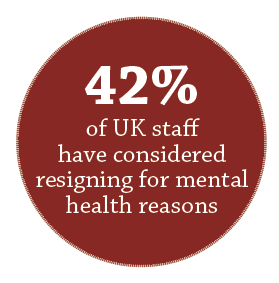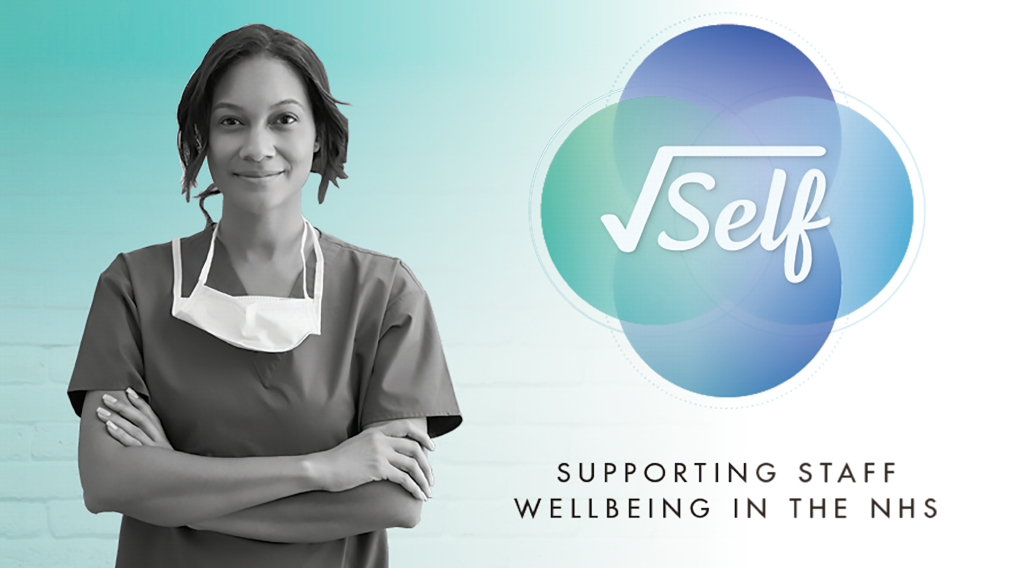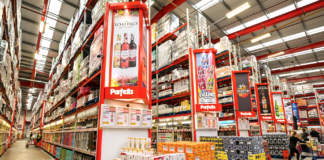According to the UK charity Mind, poor mental health is now the number-one reason for staff absence in the UK. When asked how workplace stress had affected them, more than one in five people said they had called in sick because of it.
Research from the mental health charity also showed that 14% had resigned and 42% had considered resigning when asked how workplace stress had affected them, with more than half of employers stating they would like to do more to improve staff well-being but don’t feel they have the right training or guidance
The Covid-19 pandemic and resulting lockdown has only added to this across the country, with the wholesale industry no exception.

For several years now, the Federation of Wholesale Distributors (FWD) and its members have supported the charity GroceryAid, which provides advice, support and financial assistance to everyone working in the sector, including wholesalers.
“Among its services are emotional support and advice, health and well-being support, and relationship advice,” explains FWD director of communications David Visick.
“It also provides grants for individuals and their families if they suffer an unexpected emergency, a change in circumstances or a gap in income.”
Employees of FWD member companies that trade in the retail sector have always been able to apply for this assistance, and due to the exceptional circumstances currently being faced by the hospitality sector, the charity has agreed to extend its services to foodservice wholesale colleagues as well.
Women in Wholesale has also looked to help out the industry from a mental health standpoint during the lockdown, with founder Elit Rowland running a free series of educational webinars and vlogs that have addressed issues such as how to tackle redundancy, regulate emotions and adapt to change.
“The most important thing right now is staying connected and for our members to know that they are not alone,” she explains.
“This is a devastating time for everyone. Whether you are working from home, furloughed, have been made redundant or are just in a state of dire uncertainty, stress and anxiety levels are at an all-time high. I think every good HR department knows the importance and relevance of mental health right now. Taking it seriously helps to attract and retain a diversity of talent.”
Birchall Foodservice is another forward-thinking business when it comes to employee well-being. “I feel like we’re unique and very modern in how we treat our staff. Customers are important, but we’re not ashamed to say our employees are more important,” director Louise Birchall says, describing how the business had a mental health councillor who came into the office once a week pre-lockdown for staff to chat with for free.
JJ Foodservice, meanwhile, has an employee assistance programme available for all staff members that offers confidential counselling and advice on a wide range of work and personal issues. “We also have a dedicated digital platform called the well-being centre, which offers healthy recipes and exercise for the body and mind,” says its HR manager, Joanna Florczak.
Staff development
Meanwhile, Sheffield-based Pricecheck recently appointed Rachel Robertson as its new talent and development coordinator, with employee development specifically in mind. Workplace mental health is also within her remit.
“Over recent months, we have trained members from both our office and warehouse teams to be mental health first-aiders. We thought it was important that our team can access a friendly face in a place that is convenient and comfortable for them. This is an extension of our existing Westfield Health package, which includes a mental health helpline,” Robertson explains.
The Sheffield-based wholesaler has introduced flexible working patterns to enhance work-life balance as well as a buddy scheme to ensure that new starters have a friendly face who helps them start their wholesale journey.
“We are a people-focused business and believe our team is our biggest asset. Our flat business structure and open-door approach starts with the directors and encourages communication and strong relationships.
“We are continuously looking for new approaches to how we can best support employees, with future goals of organising regular activities to support mental well-being as well as internal training for mental health first-aiders and management,” Robertson adds.
Confex has also made a number of specific measures over the past 18 months, with the buying group now much more aware of employees’ mental well-being and creating a secure workplace environment. “Following a situation last year, we supported one employee with counselling and took advice from a dedicated HR company on how to manage the situation,” says marketing and HR director Jess Douglas.
This has led to the management team at Confex being much more aware of signs of mental health issues that could be caused by work-related incidents and stress.
“The lockdown has made most wholesalers realise that changing to suit individual needs can be possible and may actually be beneficial to both sides in the long term for productivity and personal well-being,” she adds.
Programmes
Brakes’ UK HR director, Kate Woodhouse, meanwhile, describes how the foodservice giant took a decision back in 2017 to create a comprehensive colleague well-being programme. “To ensure it was relevant and meaningful, we undertook a wide-reaching research programme, which provided clear results with colleagues asking for support in three distinct areas: financial, physical and mental health.”
The company then used the information to inform a three-year well-being strategy, initially to raise awareness of the key issues, and quickly followed by delivery of practical, accessible well-being tools for everyone. This was then formalised in the company’s very first well-being charter, and shared across the business as a record of its commitment to putting well-being
at the forefront of its values.
Following the successful completion of physical health and financial health elements, the mental health element was the third tranche of the programme to be launched. It went live in 2018.
“To deliver our mental health commitment, we selected two partners, Time to Change and the Mental Health Foundation (MHF),” explains Woodhouse. “The Time to Change Employer pledge (the charter) signing was streamed live on Facebook for all colleagues to see, demonstrating our commitment to colleagues’ well-being through a seven-point action plan.”
With the MHF, Brakes developed bespoke mental health awareness training for 700 line managers across the organisation. It then captured qualitative data through this training to inform the next stage of the strategy.
“The feedback was very positive, with managers stating that their attitude to managing colleagues with poor mental health had changed dramatically following the training,” Woodhouse adds.
Events such as ‘Curry and Chat’ were also launched, in which colleagues came together across all sites over a curry to have open conversations about mental health and raise awareness.
“We were very conscious that men sometimes find it difficult to discuss mental health issues, and given that Brakes’ workforce is 75% male, we deliberately selected a mechanism that would encourage male participation, while not discouraging female colleagues. This proved successful and colleagues signed up in their hundreds, discussing issues that mattered to them.”
In addition to this, Brakes introduced mental health first-aiders in all locations to ensure colleagues are supported at work. It also engaged LifeWorks, which offers an Employee Assistance Programme with face-to-face counselling and an app to provide further education to colleagues.
“We’re very proud of the well-being programme, especially the mental health tranche, which has been shortlisted for a major national award. The well-being programme is now accepted as part of our culture and has helped many colleagues who have needed our support,” Woodhouse concludes.
Support to key workers
Bidfood, meanwhile, released the ‘The Square Root of Self’ mental wellness guide during lockdown to support key workers during the crisis. “We wanted to offer a guide that can support them with their mental wellness, plus offer hints and tips to stay energised, well fed and hydrated at a time when they need it most,” David King, Bidfood’s sector marketing manager for hospitals, says.
“Mental health and well-being is an ever-growing area of importance in the workplace. Bidfood has put a number of support tools in place to provide the care employees may need if they are suffering with their mental health,” adds the company’s director of HR, Ceri Wilmott.

She explains how in 2018 the food-service wholesaler’s health and well-being survey identified key themes that had emerged and actions that needed to be taken. Mental health ranked high on the list.
“One of the key elements we introduced as a result of the survey findings was the Hospitality Action – Employee Assistance Programme. The helpline is open 24/7, 365 days a year and includes access to a parenting helpline, health and well-being help sheets, debt and financial management, legal advice, counselling and emotional support.”
In addition, Bidfood’s online employee portal through Hospitality Action has a number of information sheets available, such as articles and tips that focus on a variety of different topics, from stress and pressure in the workplace, to personal problems.
The addition of the company’s first mental health first-aider also came in 2018, which has now been followed by several more as the company trains its employees to support their colleagues.
“All of our mental health first-aiders have supported employees at their sites, offering initial support through non-judgmental listening and guidance, being supportive during personal conversations and encouraging employees to access professional support or self-help.”
Covid-19 and the resulting lockdown then saw the launch of the company’s first-ever employee app, ‘Engage4’, which aimed to create a community feel and a place to stay in touch and share informally. “We even produced a specific feed on content targeting well-being, from how to get a good night’s sleep to mindfulness, dealing with feelings and healthy eating.”
Time to act
The evidence is there of wholesalers and buying groups making time in their operations to take care of the mental well-being of their employee bases. However, this is not the case for the entire industry.
If wholesale is to move from reactive management to a proactive approach of prevention, it requires buy-in from every part of the industry. It’s an investment worth making – not only a chance to help tackle the mental health crisis facing the UK, but also an opportunity to bring broad benefits to the workforce, businesses and wider society. The results are good for everyone’s health.









